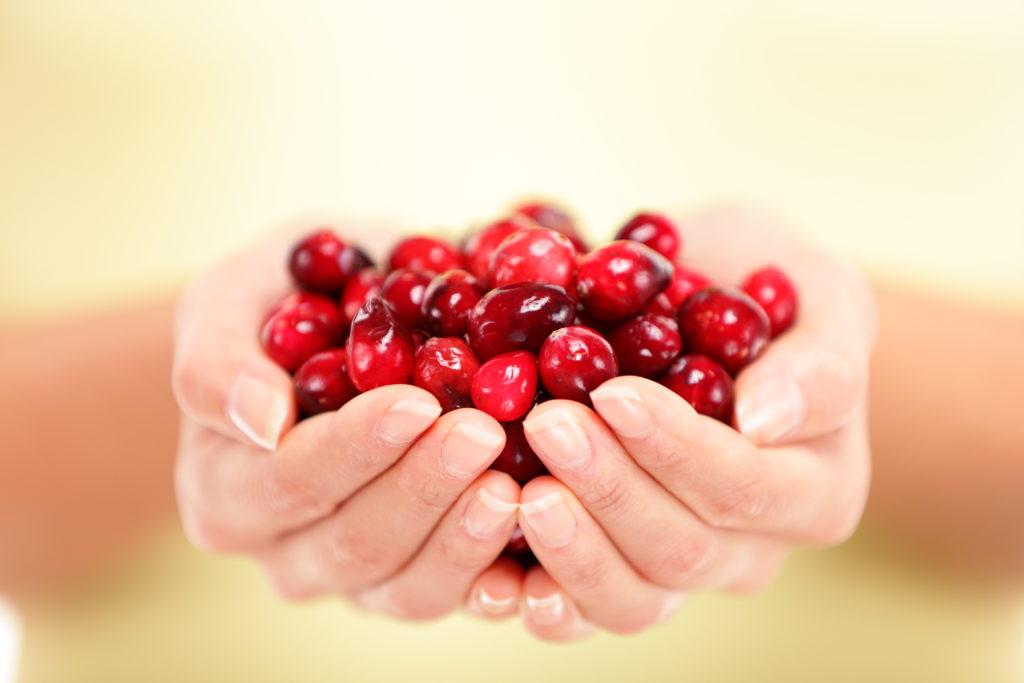
I tend to be hesitant to report on studies of single foods doing amazing things (because many do), but this piece of research still caught my eye.
So, what did this group of researchers from the University of East Anglia find?
Well, they wanted to study the effects of cranberries specifically because they are known to have plenty of flavonoids – healthy compounds which have been shown to have multiple positive effects. This was also studied in an older population of 50- to 80-year olds. Right up my street then. The goal was also to see if it could help with any effects of dementia which is becoming severe in many societies with ageing populations.
They therefore tracked 60 cognitively healthy participants over a 12-week period. Half of the participants consumed powdered cranberries equivalent to 100 grams of fresh cranberries (about a cupful) and the other half consumed a placebo.
What were the results?
Well, the results were pretty impressive. They showed that the cranberry group significantly improved memory function of everyday events (known as episodic memory) but also that the brain exhibited higher levels of oxygenation and enhanced neural functioning. On top of this the cranberry group also exhibited a significant circulating LDL (“bad” cholesterol) decrease.
So, all in that’s top news for cranberries. Whether that is just cranberries is open to interpretation – it is likely the combination of flavonoids that are found in cranberries – but cranberries are particularly rich in them and so it could do you a whole bunch of good. But do remember to keep a healthy diet in general because that will likely have the largest benefits. But if in doubt a cupful of cranberries will do no harm and likely do an awful lot of good!

Andy Habermacher
Andy is author of leading brains Review, Neuroleadership, and multiple other books. He has been intensively involved in writing and research into neuroleadership and is considered one of Europe’s leading experts. He is also a well-known public speaker speaking on the brain and human behaviour.
Andy is also a masters athlete (middle distance running) and competes regularly at international competitions (and holds a few national records in his age category).
Reference
Emma Flanagan, Donnie Cameron, Rashed Sobhan, Chloe Wong, Matthew G. Pontifex, Nicole Tosi, Pedro Mena, Daniele Del Rio, Saber Sami, Arjan Narbad, Michael Müller, Michael Hornberger, David Vauzour.
Chronic Consumption of Cranberries (Vaccinium macrocarpon) for 12 Weeks Improves Episodic Memory and Regional Brain Perfusion in Healthy Older Adults: A Randomised, Placebo-Controlled, Parallel-Groups Feasibility Study.
Frontiers in Nutrition, 2022; 9
DOI: 10.3389/fnut.2022.849902
More Quick Hits
Behaviour at eight helps predict midlife health behaviours
A long-term study in Finland has tracked children from the age of eight until the age of 50 and a new analysis of the data, just published, has looked at some of the correlations between socioemotional behaviour in childhood and later life achievement and health...
Psychedelics and consciousness
Psychedelics change our conscious experience of the world – that is part of their attraction. Now a new study out of John Hopkins Medicine has analysed data on attributions of consciousness to other animals and innate objects by those using psychedelics and how this...
Lower smartphone usage increases wellbeing
So much has been said about smartphone usage in modern times. This ranges from some who say that they are destroying our brain to others who see they benefit our cognition by outsourcing cognitive heavy tasks like remembering lists of phone numbers – thereby freeing...
Modesty preferred for cooperative teams
In an age where it appears that many people are vying for self-esteem especially through social media, this research is interesting. Particularly in business contexts where cooperation is king. Research has previously shown that appearing to be wealthy increases...
Poverty shrinks babies’ brains
Quick HitsDaily brief research updates from the cognitive sciences couple of studies have just been released which look at the brains of newborns and young babies. The results are worrying for any society. Brain scans of newborn babies from...
Babies born with five from seven functional brain networks
In the 1950s the blank slate theory was the most prominent theory ascribed to babies. They are born blank slates and then their experiences allow them to develop their networks thoughts, associations, etc., and just about everything else. Though this theory is long...






